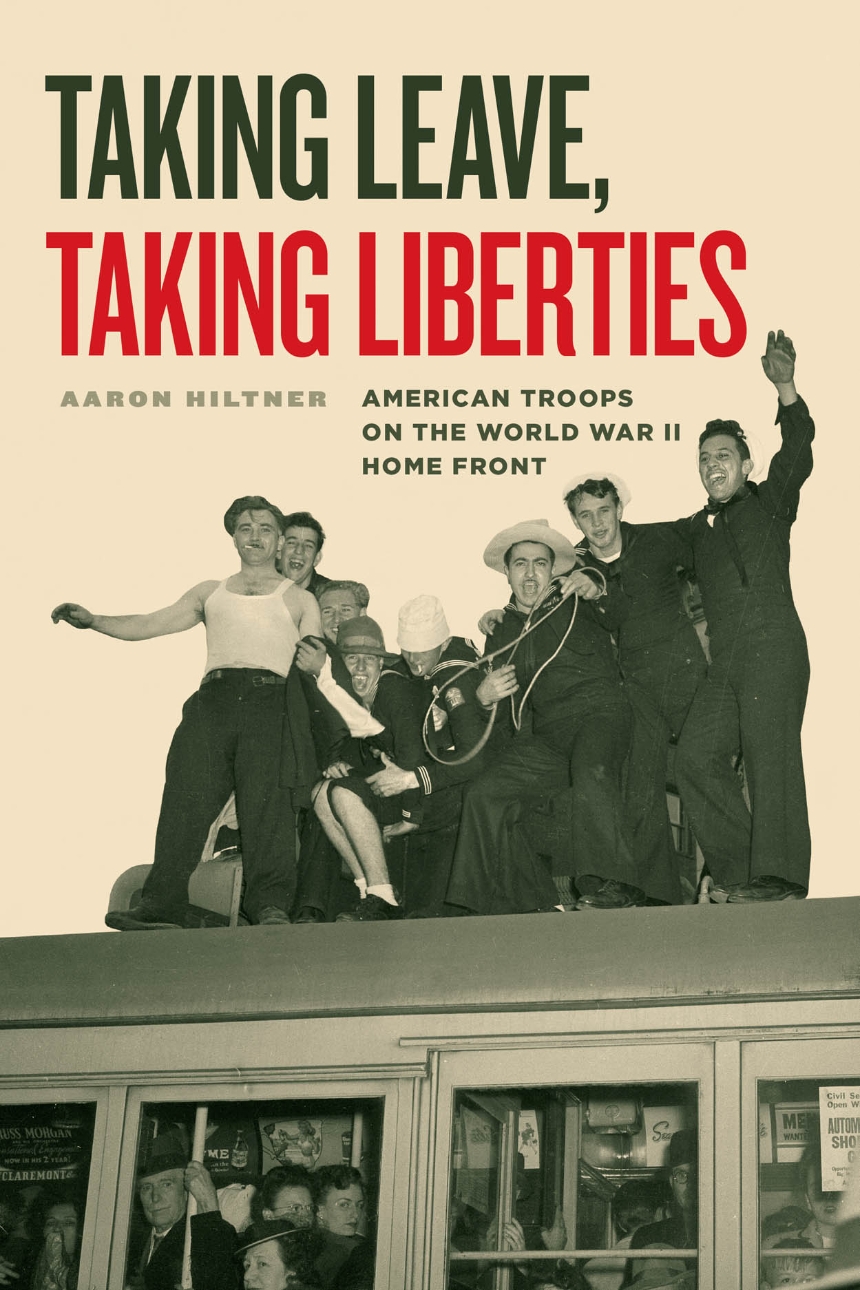Taking Leave, Taking Liberties
American Troops on the World War II Home Front
9780226687049
9780226687186
Taking Leave, Taking Liberties
American Troops on the World War II Home Front
American soldiers overseas during World War II were famously said to be “overpaid, oversexed, and over here.” But the assaults, rapes, and other brutal acts didn’t only happen elsewhere, far away from a home front depicted as safe and unscathed by the “good war.” To the contrary, millions of American and Allied troops regularly poured into ports like New York and Los Angeles while on leave. Euphemistically called “friendly invasions,” these crowds of men then forced civilians to contend with the same kinds of crime and sexual assault unfolding in places like Britain, France, and Australia.
With unsettling clarity, Aaron Hiltner reveals what American troops really did on the home front. While GIs are imagined to have spent much of the war in Europe or the Pacific, before the run-up to D-Day in the spring of 1944 as many as 75% of soldiers were stationed in US port cities, including more than three million who moved through New York City. In these cities, largely uncontrolled soldiers sought and found alcohol and sex, and the civilians living there—women in particular—were not safe from the violence fomented by these de facto occupying armies. Troops brought their pocketbooks and demand for “dangerous fun” to both red-light districts and city centers, creating a new geography of vice that challenged local police, politicians, and civilians. Military authorities, focused above all else on the war effort, invoked written and unwritten legal codes to grant troops near immunity to civil policing and prosecution.
The dangerous reality of life on the home front was well known at the time—even if it has subsequently been buried beneath nostalgia for the “greatest generation.” Drawing on previously unseen military archival records, Hiltner recovers a mostly forgotten chapter of World War II history, demonstrating that the war’s ill effects were felt all over—including by those supposedly safe back home.
With unsettling clarity, Aaron Hiltner reveals what American troops really did on the home front. While GIs are imagined to have spent much of the war in Europe or the Pacific, before the run-up to D-Day in the spring of 1944 as many as 75% of soldiers were stationed in US port cities, including more than three million who moved through New York City. In these cities, largely uncontrolled soldiers sought and found alcohol and sex, and the civilians living there—women in particular—were not safe from the violence fomented by these de facto occupying armies. Troops brought their pocketbooks and demand for “dangerous fun” to both red-light districts and city centers, creating a new geography of vice that challenged local police, politicians, and civilians. Military authorities, focused above all else on the war effort, invoked written and unwritten legal codes to grant troops near immunity to civil policing and prosecution.
The dangerous reality of life on the home front was well known at the time—even if it has subsequently been buried beneath nostalgia for the “greatest generation.” Drawing on previously unseen military archival records, Hiltner recovers a mostly forgotten chapter of World War II history, demonstrating that the war’s ill effects were felt all over—including by those supposedly safe back home.
280 pages | 9 halftones | 6 x 9 | © 2020
History: American History, Military History
Sociology: Criminology, Delinquency, Social Control
Reviews
Table of Contents
Introduction
What Happened on the Home Front
Chapter One Making the Military Man
Chapter Two Taking Liberty
Chapter Three Women Face the Uniform
Chapter Four The Militarized City
Epilogue Postwar Invasions and Occupations
Acknowledgments
List of Abbreviations
Notes
Bibliography of Primary Sources
Index
What Happened on the Home Front
Chapter One Making the Military Man
Chapter Two Taking Liberty
Chapter Three Women Face the Uniform
Chapter Four The Militarized City
Epilogue Postwar Invasions and Occupations
Acknowledgments
List of Abbreviations
Notes
Bibliography of Primary Sources
Index
